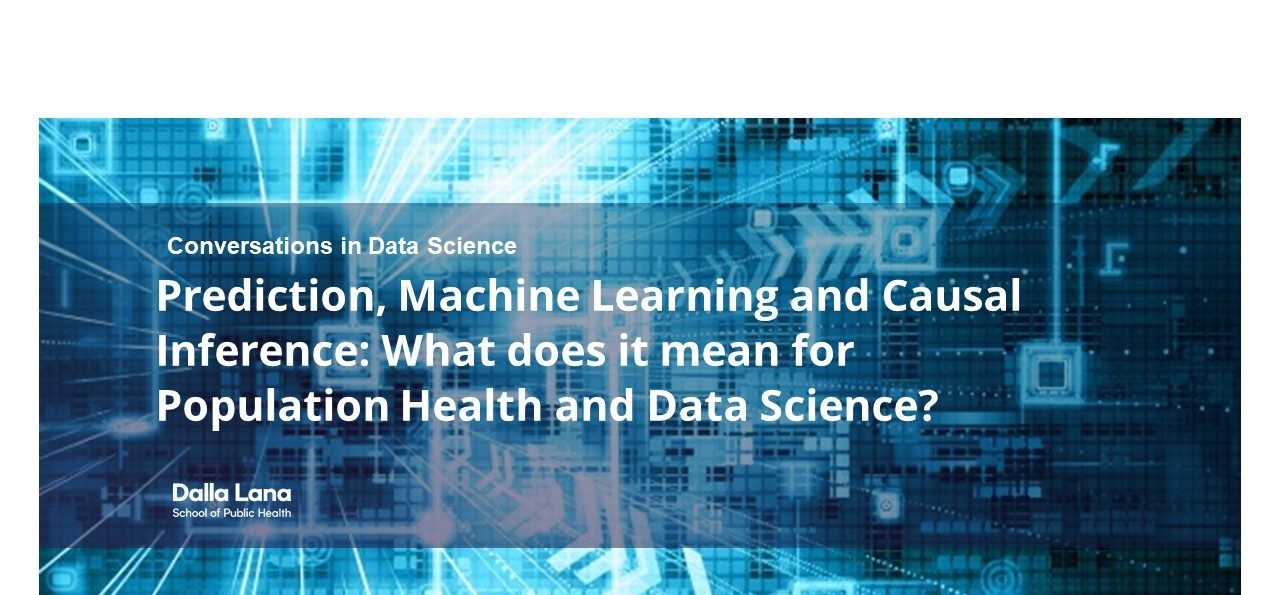Data Science Interdisciplinary Research Cluster
Answering causal questions is a strong focus within population health and health care research. The recent prominence of machine learning methods and emphasis on prediction research has reinforced debates about the important conceptual differences between causal and prediction research. However, more recently, the conversations have highlighted the potential synergies in how machine learning methods can be embedded within a causal framework to improve causal effect estimation. This event featured a keynote speaker and panelists from biostatistics, machine learning, population health and healthcare backgrounds to unpack the intersection of prediction, machine learning and casual inference and what this means for the disciplines embedded within Schools of Public Health.
To watch the recording of “Prediction, Machine Learning and Causal Inference: What does it mean for Population Health and Data Science?” click HERE.
Professor Tony Blakely, University of Melbourne School of Population and Global Health, delivered a keynote discussing his latest ideas related to machine learning and causal inference building on his International Journal of Epidemiology paper, “Reflection on modern methods: when worlds collide – prediction, machine learning and causal inference”
Introduction:
- Michael Chaiton, Scientist, Centre for Addiction and Mental Health
Panelists:
- Olli Saarela, Associate Professor, Dalla Lana School of Public Health, University of Toronto
- Vishwali Mhasawade, PhD Candidate, Computer Science and Engineering, Chunara Lab, New York University
- Elham Dolatabadi, Assistant Professor, IHPME, Dalla Lana School of Public Health, University of Toronto and Staff Scientist at Vector Institute
Moderator:
- Laura Rosella, Associate Professor, Dalla Lana School of Public Health, University of Toronto and Scientific Director of the Population Health Analytics Lab
About the Keynote Speaker
Tony Blakely is an epidemiologist and public health medicine specialist. He is committed to answering questions about which public health interventions will achieve the greatest improvements in health and social outcomes, reduce inequalities in health, and do so cost-effectively. While principally an epidemiologist, he uses and combines methods from multiple disciplines: biostatistics, economics, econometrics, and computer and data science.
Blakely is Director of the Population Interventions (PI) Unit within the Centre for Epidemiology and Biostatistics at the Melbourne School of Population and Global Health. The PI Unit includes projects using contemporary epidemiological and econometric methods applied to existing data, through to projects using simulation models to estimate the health gains and cost impacts of interventions such as tobacco tax, dietary counseling, etc. Blakely collaborates with the University of Washington Institute of Health Metrics and University of Otago to build next-generation macro-simulation models, that will intersect easily with Global Burden of Disease data to allow multi-country evaluations.
Cutting across all of Blakely’s research is a strong focus and interest in epidemiological and quantitative research methodologies. Blakely teaches short-courses in advanced epidemiology and simulation modelling, in both Australia and New Zealand. He has co-authored a book on the history of mortality decline in New Zealand, and published approximately 300 peer reviewed journal articles.
This event is a co-presentation of the Data Science Interdisciplinary Research Cluster at the University of Toronto’s Dalla Lana School of Public Health, and the Centre for Addiction and Mental Health (Toronto, Canada)

